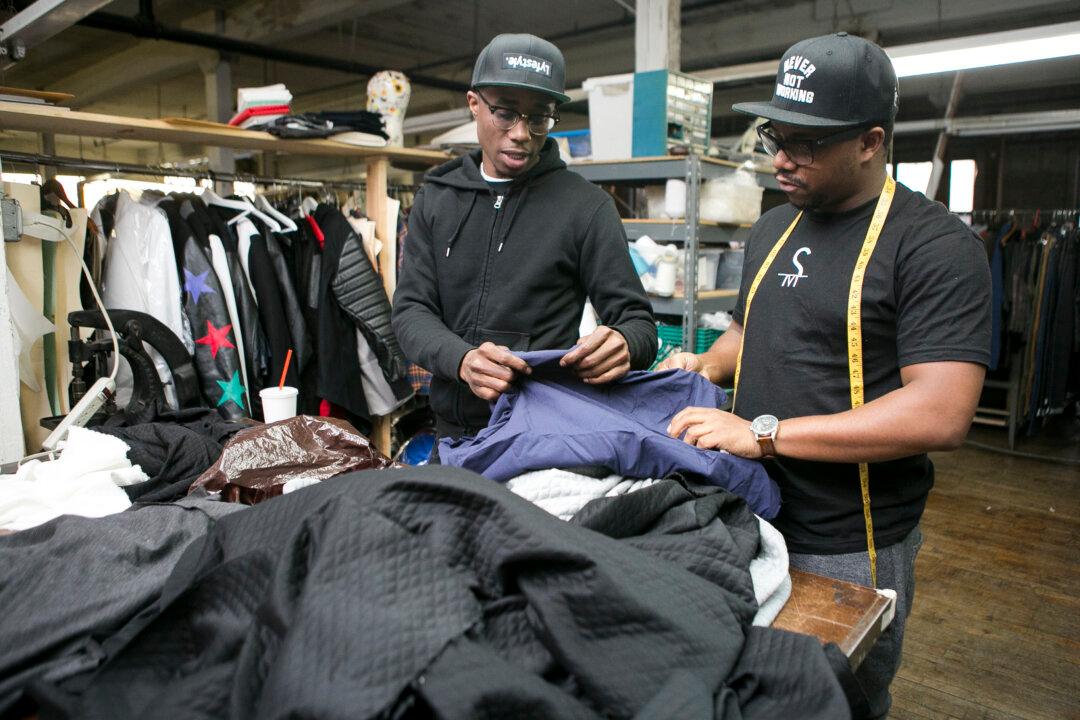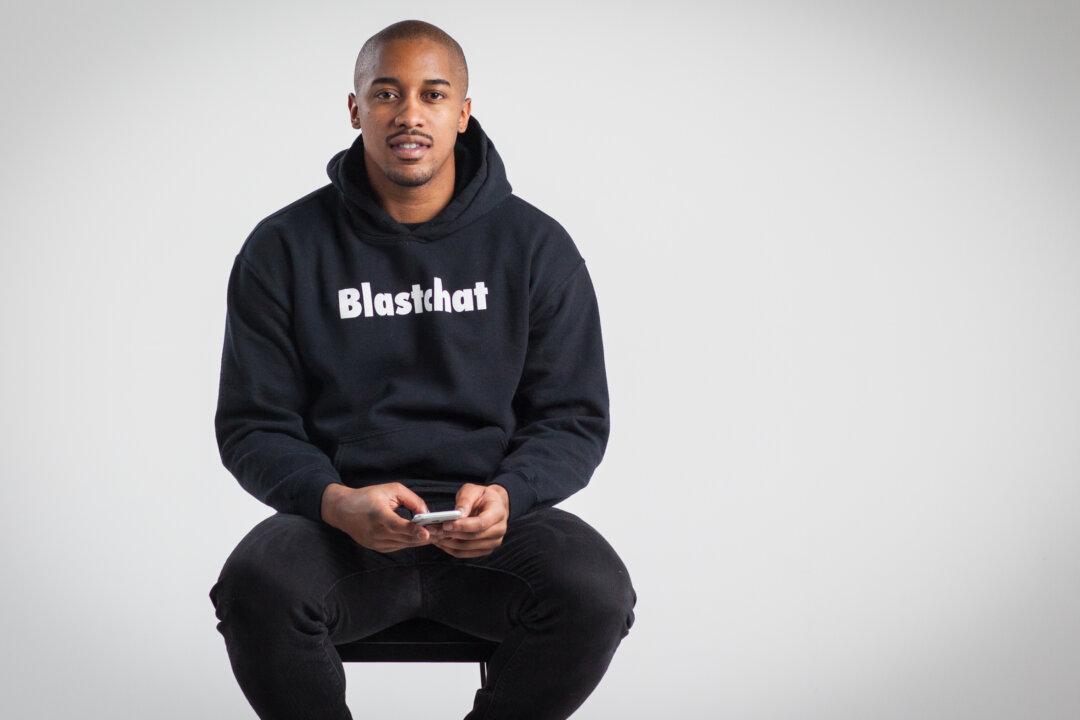NEW YORK— Two spiffy African-Americans—Clinton Ballard, a 10th grade chemistry teacher, and John Oliver, a former FedEx manager—work after hours as a salmon sun sets on the Brooklyn skyline. There is much work to be done in their Bushwick clothing factory. They are producing a spring and summer line for a boutique. And they do everything themselves.
They find the fabric, sketch the design, develop a pattern, cut the fabric, and sew it all up into sleek button-up shirts, hats, and varsity jackets.
Ballard and Oliver are the founders of Brooklyn Alchemist Station, a small menswear factory. Apart from running their own clothing lines—Oliver New York, and Lifestyle—they produce small amounts of clothing (around 30 to 40 items a week) for other designers and provide advice for new designers.
They are a small company that is going against the grain.
According to a report put together by the New York City Economic Development Corporation and the Municipal Arts Society, there are 900 fashion companies headquartered in New York. But most companies have their clothing manufactured in cheap and often dangerous factories in countries like China or Bangladesh.
It’s all the more reason that manufacturing needs to make a comeback in the United States.
And Brooklyn, of all places, is the place where it will come back, Ballard and Oliver firmly believe.
It’s a nod to what Brooklyn once was: a borough once filled with ironworks and slaughterhouses, gas refineries and dockyards, and factories that made pencils, and factories that made clocks.
Just outside the Brooklyn Alchemist Station, there are old rail tracks and abandoned warehouses.
“But I don’t know if manufacturing is ever going to come back here,” said Robin Sackin, chair of the Fashion Merchandising Management department at the Fashion Institute of Technology. Considering consumers’ tendency to prefer cheap prices, clothing retailers are likely to continue outsourcing to low-cost suppliers.
“Who knows, maybe they can develop something. My hat’s off to them for trying to do this,” she said. “It has to start somewhere to bring the manufacturing back.”
A Noble Sacrifice
Ballard, 29, a Brownsville-native, is the first in his family to go to college. He holds two masters degrees—one in drug regulatory affairs, another in teaching.





